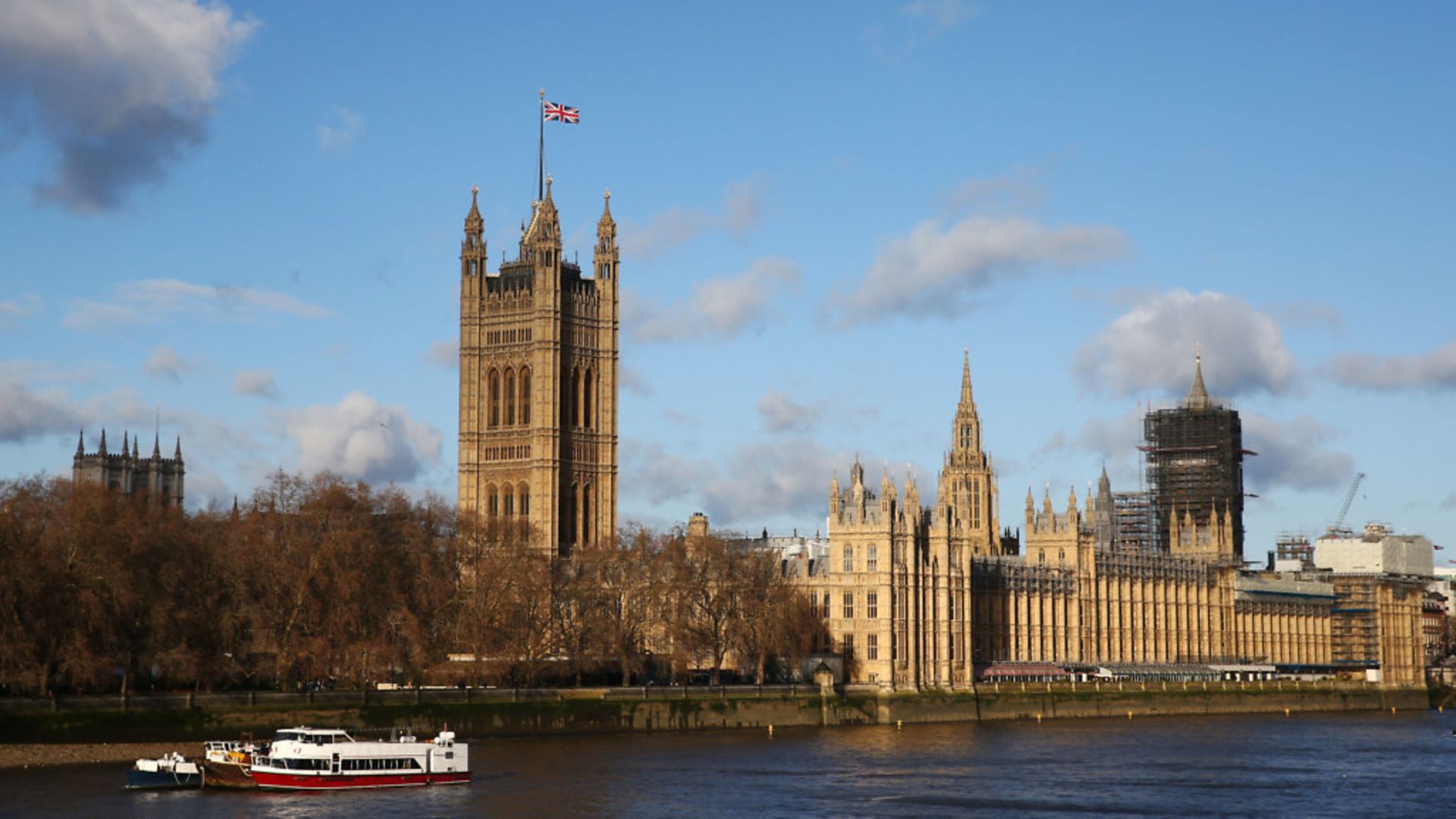
ANDREW ADONIS ranks the (sometimes surprising) names who changed British history for better or worse.
My top 20 shapers of modern Britain includes those who made things much worse – the top spot goes to the politician who made things worst of all, although he wasn’t a bad man – as well as those who sought the sunlit uplands. Four of the 20 had a massive negative impact; another three were about equally good and bad, and of the other 13 a distressingly high proportion of their achievement was simply to undo the disasters of their immediate predecessors. This is true of the most famous figure among the 20, who comes in second because his achievement consisted almost entirely in undoing the malign legacy of No 1.
Politics is as much about regress as progress and sometimes, as in the first half of the 20th century, it falls off the edge of a cliff.
Many major figures have been omitted, and the list features some key women and BAME leaders who have not achieved high office. I make no apology: their achievements lie largely but crucially in the change they led to political engagement within a radically reshaping British society. One of the 20 is the foremost royal ‘politician’ of the last 120 years. Why a princess rather than another ‘cultural’ figure like John Lennon? Because the monarchy bestrides our society and governance, and its evolution is of huge significance to modern Britain.
20. Tony Benn
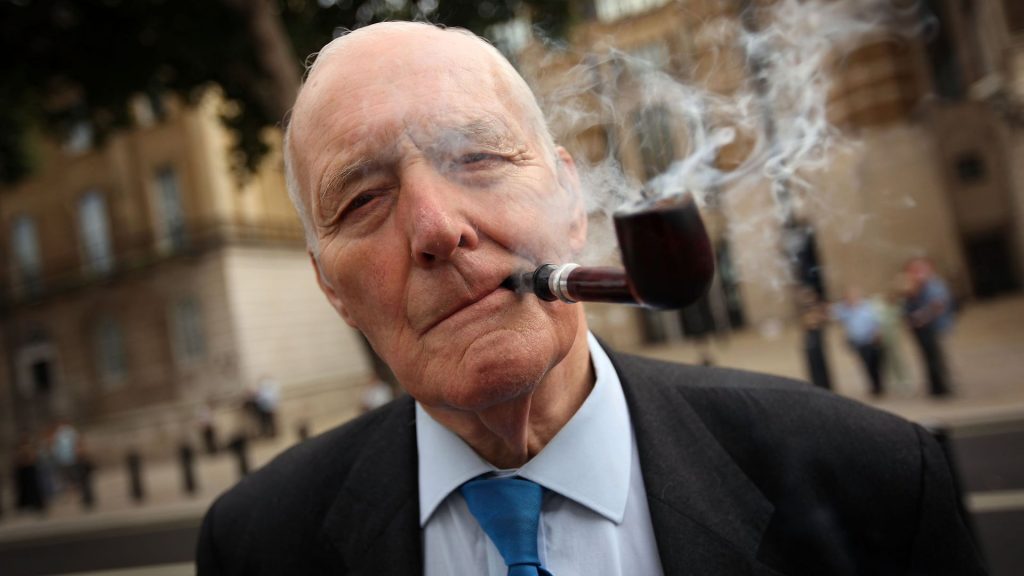
Establishment radicals claiming to want to topple the system that nurtured them are a regular recurrence in British politics. Anthony Wedgwood Benn, aka Viscount Stansgate, and Sir Oswald Mosley were the principal manifestations in the 20th century, both of them Labour aristocracy. Mosley veered to the fascist right in the 1930s, Benn to the Marxist left in the 1980s, consorting with Arthur Scargill and left militants to radicalise the Labour party. His legacy was a Thatcher government some years longer than it might otherwise have been – and a model for his friend and protégé Jeremy Corbyn to copy a generation later.
Born: April 3, 1925
Died: March 14, 2014
Education: Westminster School. New College, Oxford
Memorable phrase: “The Labour Party has never been a socialist party, although there have been socialists in it – a bit like Christians in the Church of England.”
19. Diane Abbott
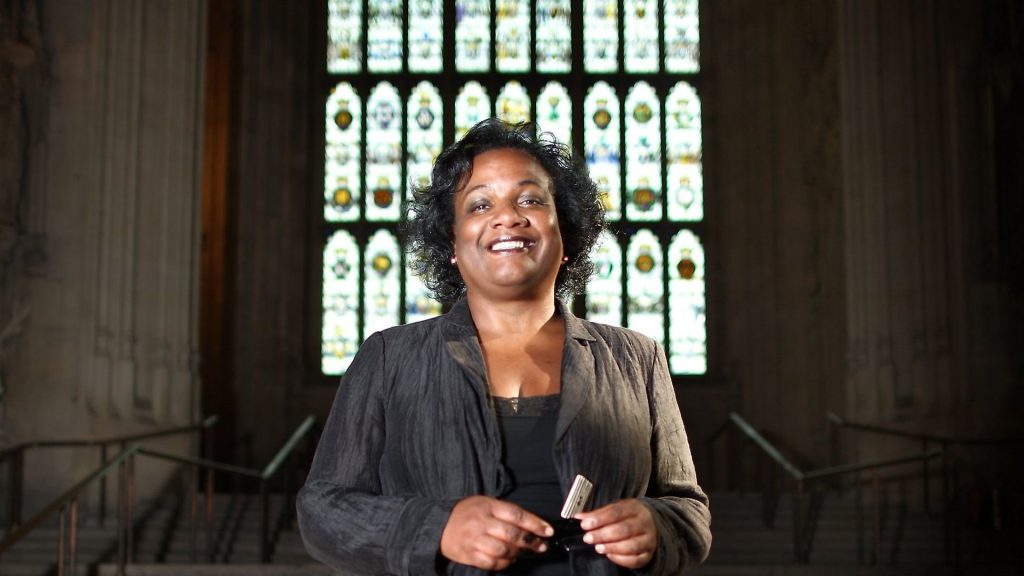
Diane Abbott probably won’t now herself achieve senior office in government. But as the first black female politician in a senior shadow cabinet post, having served a third of a century in parliament, she is up there with Barbara Castle and Shirley Williams as a role model for the many women politicians following in her footsteps into the third decade of the Britain’s increasingly multi-racial 21st century.
Born: September 27, 1953
Education: Harrow County Grammar School for Girls. Newnham College, Cambridge
Memorable phrase: “I’m in politics to be a voice for people who don’t have a voice.”
18. Aneurin Bevan
The National Health Service is “the closest thing the English have to a religion”, bemoaned Thatcher’s chancellor Nigel Lawson. A generation later, with the NHS the instrument of national salvation in Covid-19, Bevan’s place in the British pantheon is more assured than ever.
Born: November 15, 1897
Died: July 6, 1960
Education: Central Labour College
Memorable phrase: “No society can legitimately call itself civilised if a sick person is denied aid because of lack of means.”
17. Sadiq Khan
All three mayors of London achieved fame by their first name alone, but Sadiq is still generally called it, unlike his predecessor. I’ve had a soft spot for him since we served as ministers of transport together under Gordon Brown. Now the first senior Muslim politician in the country, he has stood up to both Johnson and the abominable Trump with a self-assurance that makes Londoners proud.
Born: October 8, 1970
Education: Ernest Bevin School. University of North London
Memorable phrase: “President Donald Trump is just one of the most egregious examples of a growing global threat.”
16. Harold Macmillan
A shrewd moderniser pretending to be an Edwardian relic, Harold Macmillan picked up the pieces from Eden’s Suez disaster and advanced Britain towards a more consumerist, European future until forced into premature retirement after the Profumo sex scandal of 1963, the beginning of the ‘swinging sixties’. He told South Africa’s apartheid rulers that a “wind of change” was sweeping through Africa, but the main victim was the British empire itself.
Born: February 10, 1894
Died: December 29, 1986
Education: Eton College. Balliol College, Oxford
Memorable phrase: “Most of our people have never had it so good.”
15. Alex Salmond
If Scotland becomes independent, the breakthrough moment will be seen as Alex Salmond’s leadership of the Scottish National Party after 1990. Alternately pugilist, oil economist and defendant in sex scandals, in 2007 he became first minister of the Scottish parliament. The first SNP leader to lead the Scottish executive, he turned his party into his nation’s dominant one via the 2014 referendum which he persuaded David Cameron to call. The vote was 55-45 against independence. His followers believe they can now see the promised land, while the retired Salmond broadcasts on Putin’s Russia Today.
Born: December 31, 1954
Education: Linlithgow Academy. University of St. Andrews
Memorable phrase: “I have believed in Scottish independence all my political life, I continue to believe in Scottish independence, I shall do everything I possibly can to contribute to that cause.”
14. Barbara Castle
The first woman to make a serious mark on cabinet level politics, Labour’s Castle could have become its first woman leader in the 1970s with a fair wind. A big expansion of pensions, and a big advance towards equal pay for men and women, were notable legacies. The highest offices just eluded her but she inspires women of the left then and now.
Born: October 6, 1910
Died: May 3, 2002
Education: Bradford Girls’ Grammar School. St. Hugh’s College, Oxford
Memorable phrase: “I will fight for what I believe in until I drop dead. And that’s what keeps you alive.”
13. Nigel Farage
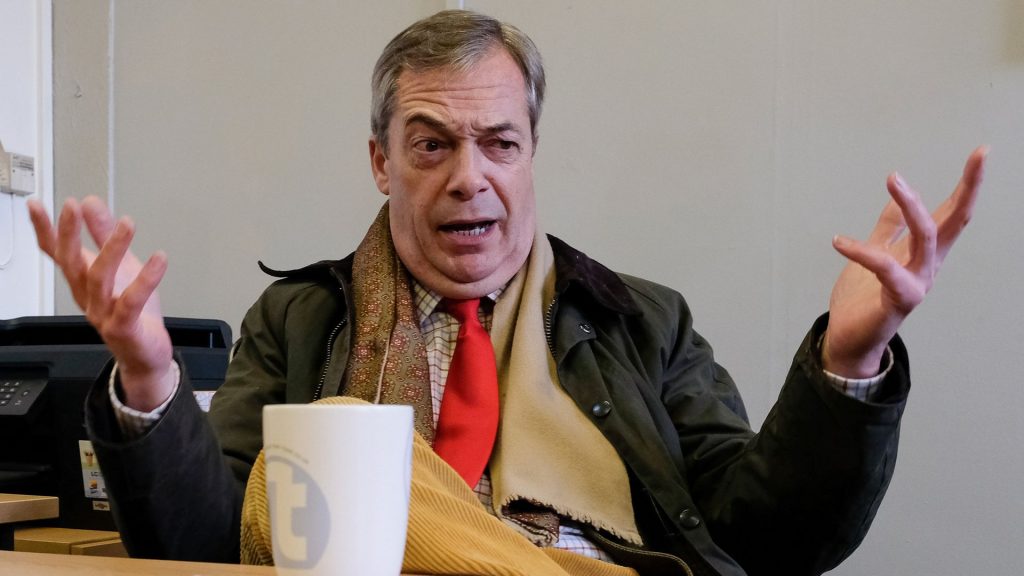
Although never an MP, Nigel Farage and his triumphant Brexit project had a bigger impact on modern Britain than all but those above, in my view. He led UKIP and founded the Brexit Party, but his power came above all from his reverse takeover of the Conservative party. After the 2016 referendum he was the Tory party’s spiritual leader, so much so that polls of party members showed him a favourite for the job. He forged a special relationship with Donald Trump, which became the axis of western populism until Trump’s defeat this month.
Born: April 3, 1964
Education: Dulwich College
Memorable phrase: “In a 52-48 referendum this would be unfinished business by a long way. If the Remain campaign win two-thirds to one-third that ends it.”
12. Anthony Eden
A dashing First World War hero and anti-appeaser in the 1930s, Eden was Churchill’s natural successor in 1955. But he wrongly confused Nasser with Hitler and Mussolini, and his Suez invasion a year later was an ignominious failure which had him out of No.10 within three months. The effect on Britain’s international standing was shattering. Decolonisation rapidly accelerated; Britain had “lost an empire but has not yet found a role,” said Dean Acheson soon after. On the rebound Harold Macmillan made Britain’s first application to join the nascent European Union in 1961, which Eden had resisted.
Born: June 12, 1897
Died: January 14, 1977
Education: Eton College. Christ Church, Oxford
Memorable phrase: “All my life, I’ve been a man of peace, working for peace, striving for peace, negotiating for peace. But I’m utterly convinced that the action we have taken is right.” – on Suez
11. Stanley Baldwin
Baldwin turned the pouring of oil on troubled waters into an art form that made Britain’s experience of the 1920s and 1930s more placid and peaceable than on the continent, despite the Great Depression. The same bedside manner kept the monarchy intact through the abdication crisis of 1936. But it wasn’t what the doctor ordered to defuse Mussolini and Hitler, and his drift into appeasement, and failure to rearm quickly, led directly to the escalating international freak show after his retirement in 1937.
Born: August 3, 1867
Died: December 14, 1947
Education: Harrow School. Trinity College, Cambridge
Memorable phrase: “Never complain and never explain.”
10. Diana, Princess of Wales
If the monarchy – the pinnacle of society and governance – fails to make it through the second quarter of the 21st century, as seems distinctly possible if The Crown’s next season builds on the present one, it will be the doing of Diana, Princess of Wales. The ‘people’s princess’ endeared herself to the public as surely as she stripped away the mystique and defences of an institution previously protected like a Shinto shrine. Her marriage and divorce from Charles, then tragic death in a car accident electrified a country emerging from the gloom of the 1970s and no longer deferential to status without charisma or purpose.
Born: July 1, 1961
Died: August 31, 1997
Education: West Heath Girls’ School
Memorable phrase: “I always knew I’d never be the next queen. I’d like to be a queen of people’s hearts, in people’s hearts, but I don’t see myself being queen of this country.”
9. Harold Wilson
The only leader of any party to win four elections in the 20th century, three of them on a knife edge, Harold Wilson is the serpentine survivor in modern politics. But in the light of what came after, his record looks better and better. He kept Britain out of Vietnam and in the European Union, winning his equivalent of Cameron’s Brexit referendum by two-to-one. He did a far better job than Heath and Callaghan, who came after him, in managing relations with the trade unions at a time of acute industrial strife. Buy Wilson: he may rise higher.
Born: March 11, 1916
Died: May 24, 1995
Education: Wirral Grammar School for Boys. Jesus College, Oxford
Memorable phrase: “He who rejects change is the architect of decay. The only human institution which rejects progress is the cemetery.”
8. Clement Attlee
“A modest man with a lot to be modest about,” said Churchill. But the wartime leader had great respect for his wartime coalition partner, and even more after the ‘little man’ ousted him in a landslide victory in 1945 and put the Tories on the defensive for the next generation with collectivism, nationalisation and the creation of the NHS. Attlee was the best conductor of a political orchestra in 20th century politics. Bevin, Bevan, Cripps, Dalton, Morrison – all kept in broad harmony until the dying months of his government after six exhausting years of office taking off directly from the wartime coalition. Attlee’s biggest personal initiative was the decision for rapid decolonisation in India in 1947, the beginning of the end of an empire which previously coloured a third of the globe pink.
Born: January 3, 1883
Died: October 8, 1967
Education: Haileybury College. University College, Oxford
Memorable phrase: “Labour has nothing to gain by dwelling in the past. Nor do I think we can impress the nation by adopting a futile left-wingism. I regard myself as left of centre which is where a Party Leader ought to be. It is no use asking, ‘What would Keir Hardie have done?’ We must have at the top men brought up in the present age, not, as I was, in the Victorian Age.”
7. Tony Blair
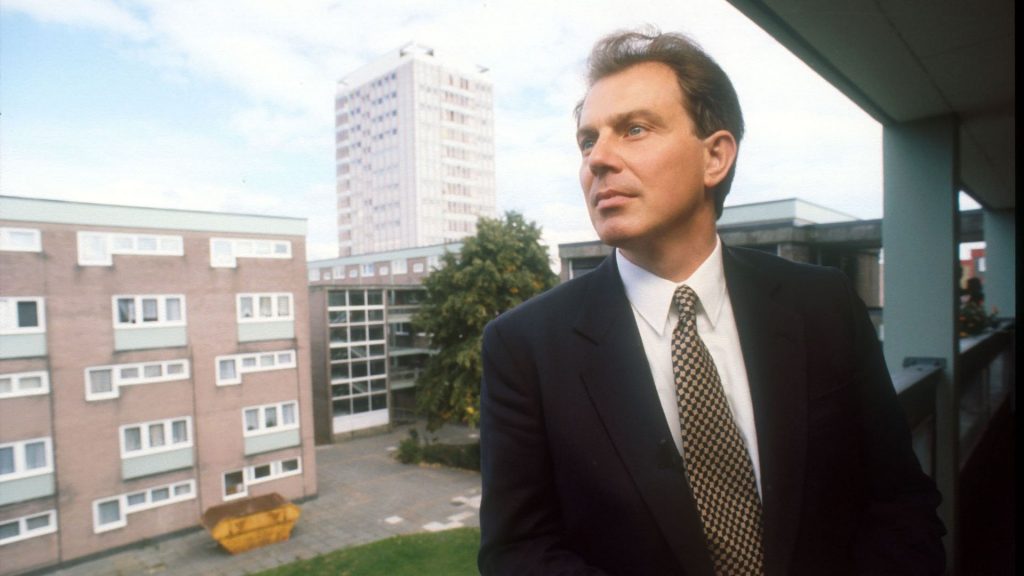
“A day like today is not a day for soundbites, really, but I feel the hand of history upon our shoulders I really do,” said Tony Blair in a typical flourish on the eve of the 1998 Good Friday Agreement which ended a civil war in Northern Ireland dating back three decades with roots in the centuries before. It was the best of New Labour, and if Brexit undermines the United Kingdom, it may have paved the way for a United Ireland sooner rather than later.
Blair is Labour’s only leader to win three elections in a row, making him second only to Thatcher in longevity in No.10 since 1900. He bemoaned “scars on his back” from public service reforms but his decade of “invest and reform”, trebling spending on the NHS and doubling it on state education, reinvented the welfare state built up by the post-war Attlee government half a century before. Fatefully Blair invaded Iraq with George W Bush. He saw it as his Falklands; it became his Suez.
Born: May 6, 1953
Education: Fettes College. St. John’s College, Oxford
Memorable phrase: “Ask me my three main priorities for government, and I tell you: education, education and education.”
6. David Lloyd George
Replacing the supine Asquith mid-way through the First World War, the ‘Welsh Wizard’ got Britain out of the ‘war to end all wars’ just about intact in 1918. He was so popular as the harbinger of victory, pledged to build “homes fit for heroes”, that the Tory leader Bonar Law said “he can be prime minister for life if he likes”.
The homes didn’t mostly materialise, and Britain’s last Liberal prime minister survived in No.10 only for another four years. He never held office again, once the Tories ended their coalition with him and the new Labour party encroached from the left. His reputation was vitiated on left and right by negotiating the independence of (southern) Ireland in 1922 after another bloody conflict. He has a fair claim to have initiated Britain’s welfare state with his pensions, social insurance and ‘people’s budget’ before the First World War. This involved a battle with the House of Lords – “five hundred men chosen at random from the ranks of the unemployed” as he famously called the peers – which helped make Britain a democracy.
Born: January 17 1863
Died: March 26, 1945
Education: Llanystumdwy National School
Memorable phrase: “What is our task? To make Britain a fit country for heroes to live in.”
5. Margaret Thatcher
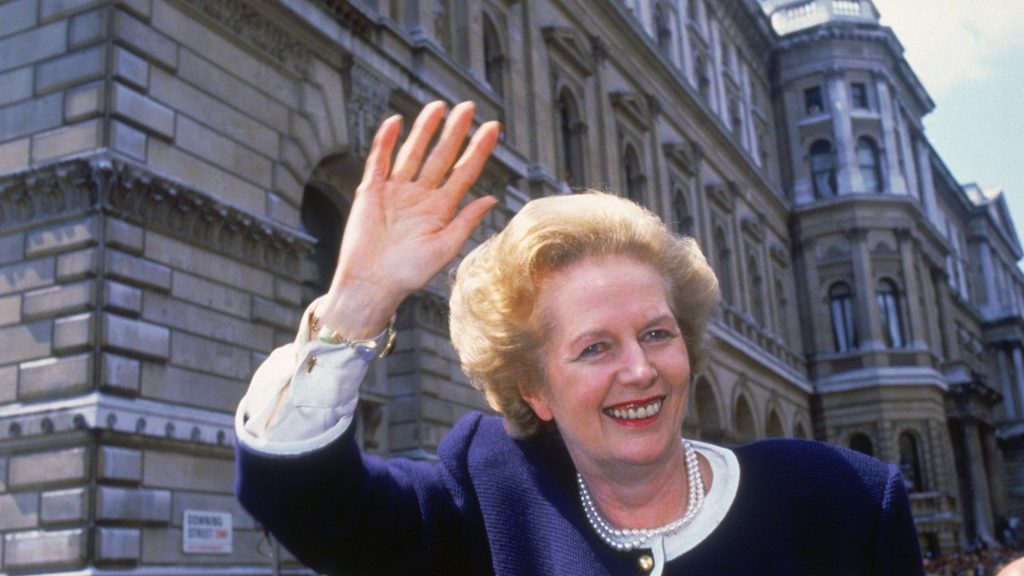
‘Catherine the Great of Finchley’ – Denis Healey’s attempted insult in which she revelled as much as the Soviets calling her the ‘Iron Lady’ – would enjoy international fame as first woman leader of a major western democracy even if she wasn’t also the longest-serving prime minister of the century whose name is synonymous with the free-market revolution she pioneered alongside her friend and ally Ronald Reagan.
Privatisation, tax cuts, and a partially successful assault on the welfare state and the trade unions, made Thatcher darling of the right and demon of the left. A nationalistic Boudica after the Falklands War of 1982, her 1988 Bruges speech launched a Tory anti-European movement inflamed by ardent admirer Nigel Farage. “We have not successfully rolled back the frontiers of the state in Britain, only to see them re-imposed at a European level” was her rallying cry. Brexit is her malign legacy.
Born: October 13, 1925
Died: April 8, 2013
Education: Kesteven and Grantham Girls School. Somerville College, Oxford
Memorable phrase: “No! No! No!” – on Jacques Delors’ plans for advancing the European Union
4. Roy Jenkins
The sexual and social liberation of the 1960s was brought about by Roy Jenkins above all. As the only radically liberal home secretary since the post was created in 1782, he initiated an amazing programme of reforms in Harold Wilson’s first government, including the legalisation of homosexuality and abortion, the abolition of print and theatre censorship, and the first legislation to overcome race and sex discrimination.
Jenkins was a passionate pro-European, and largely responsible, with Edward Heath, for Britain’s entry into the European Community in 1973. Four years later he became the only British president of the European Commission (so far), launching European monetary union leading to today’s euro. Returning to Britain in 1981, he founded the SDP, which presaged New Labour under his young admirer Tony Blair a decade later.
Born: November 11, 1920
Died: January 5, 2003
Education: Abersychan County Grammar School. Balliol College, Oxford
Memorable phrase: “ I am in favour of courage – who is ever not in the abstract? – but not of treating it as a substitute for wisdom.”
3. Ernest Bevin
Bevin gets confused with Bevan, another titan of Attlee’s 1945 Labour government, but Bevin was more consequential than both the other two. He was Churchill’s right-hand man throughout the war, mobilising the home front as minister of labour while the war leader masterminded the battlefront, deploying all his skill and heft as founder and leader of the largest trade union in the country for the previous two decades.
As foreign secretary for six tumultuous years after Labour’s victory in 1945, Bevin acted to keep Stalin’s communist tyranny out of western Europe, forging Nato and the Atlantic alliance and founding the Federal Republic of Germany. These are still today the pillars of Europe’s peace, democracy and security. Ernie left school at 11. “He could neither read, write, nor speak, but did all three triumphantly,” said one wag.
Born: March 9, 1881
Died: April 14, 1951
Education: None beyond age 11
Memorable phrase: “I want to build, brothers” – to his union delegates.
2. Winston Churchill
Churchill was wrong, often horrendously so, on many of the big calls in his career, from the terror bombing of Iraq to resisting Indian independence, returning the pound to the gold standard as chancellor and causing mass unemployment, even supporting the unstable Nazi-sympathising Edward VIII in the abdication crisis of 1936. But the greatest political adventurer of the century was emphatically right in standing up to Hitler when he seized the reins of power from Neville Chamberlain in May 1940. Overnight he became the bulldog symbol of national resistance and salvation.
His rival for the premiership, Lord Halifax, wanted to follow defeated France and agree an armistice, making Hitler master of the entire European continent and beyond. So Churchill was truly the hand of destiny. “I have nothing to offer but blood, toil, tears and sweat,” he told the House of Commons. His sheer will power stood between the Luftwaffe and defeat until the great military and social mobilisation, and Anglo-American alliance, gathered pace over the next four years.
Churchill fought 20 elections in a political career of 65 years, 40 of which had already elapsed by 1940, including service as First Lord of the Admiralty in the First World War. As he said without false modesty, his whole life was a preparation for this “finest hour”.
Born: November 30, 1874
Died: January 24, 1965
Education: Harrow School. Royal Military College, Sandhurst
Memorable phrase: “We shall not flag or fail. We shall go on to the end… we shall never surrender.”
1. Sir Edward Grey
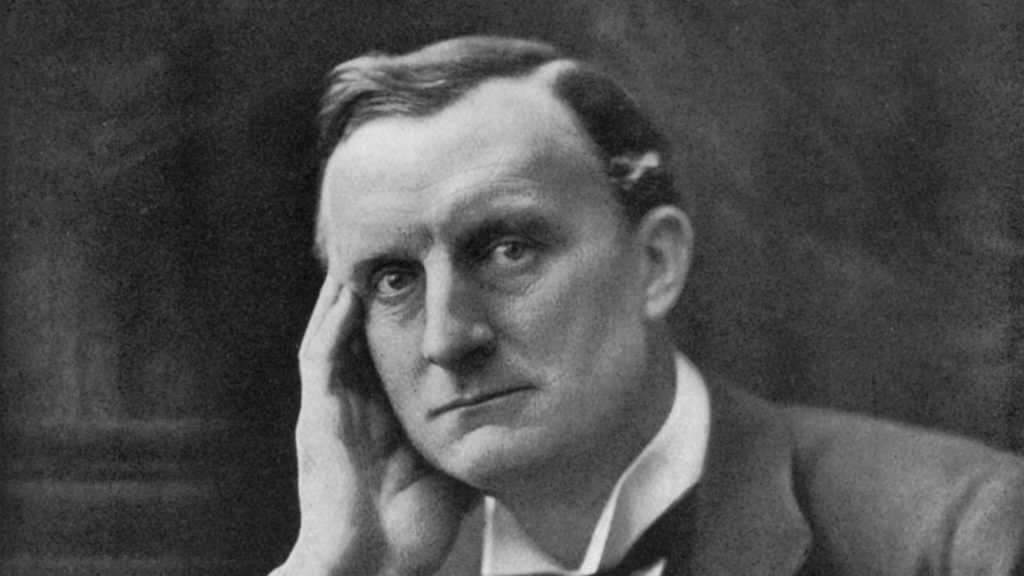
A taciturn, insular and fairly dim minor aristocrat from Northumberland, Edward Grey was largely responsible for the single most traumatic event of Britain’s 20th century: its entry into the First World War in 1914. As a generation was eviscerated on the western and eastern fronts over the next four years, revolutions and a flu pandemic destroyed the monarchies of Russia, Austria and Germany, unleashing the communism and fascism which produced Hitler, Stalin and the Second World War.
Grey, Liberal foreign secretary for the nine years leading up to 1914, should have copied Gladstone, the great Liberal leader of the previous generation, who kept Britain out of the Franco-German war of 1870/1. Until the final days of the crisis caused by the assassination of Austrian Archduke Franz Ferdinand in Sarajevo on June 28, 1914, it was generally expected that this would happen. “Happily there seems to be no reason why we should be anything more than spectators,” prime minister H.H. Asquith wrote to his lover as late as July 24.
But after 11 days of Grey’s bumbling diplomacy and mixed messages as to Britain’s intentions, the country stumbled into a declaration of war on Germany on August 4 – and the 20th century descended into the abyss. We can’t know what would have happened if Grey had avoided war, but it is inconceivable it could have been worse.
Born: April 25, 1862
Died: September 7, 1933
Education: Winchester College. Balliol College, Oxford
Memorable phrase: “The lamps are going out all over Europe; we shall not see them lit again in our lifetime.”









